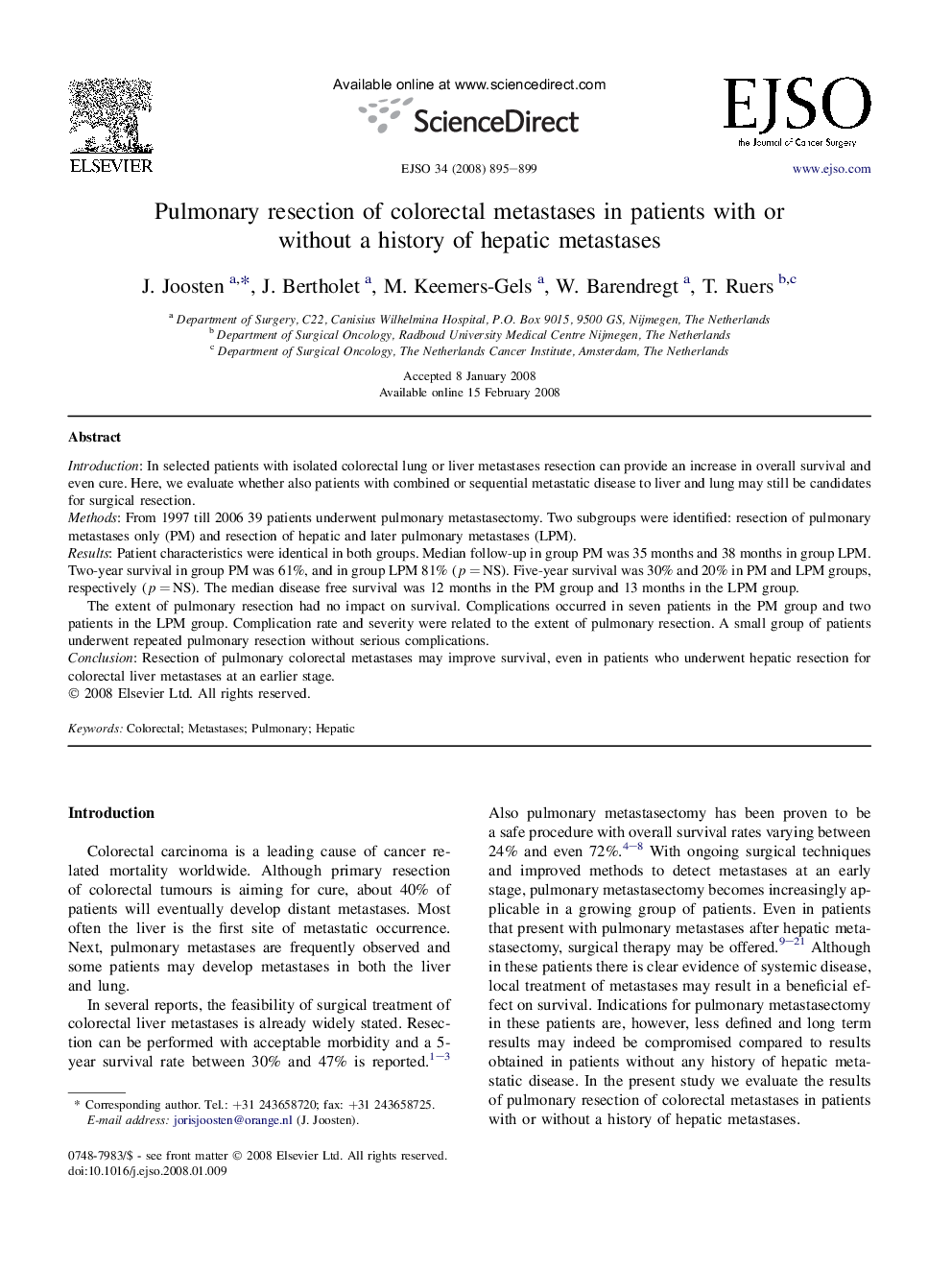| Article ID | Journal | Published Year | Pages | File Type |
|---|---|---|---|---|
| 3986861 | European Journal of Surgical Oncology (EJSO) | 2008 | 5 Pages |
IntroductionIn selected patients with isolated colorectal lung or liver metastases resection can provide an increase in overall survival and even cure. Here, we evaluate whether also patients with combined or sequential metastatic disease to liver and lung may still be candidates for surgical resection.MethodsFrom 1997 till 2006 39 patients underwent pulmonary metastasectomy. Two subgroups were identified: resection of pulmonary metastases only (PM) and resection of hepatic and later pulmonary metastases (LPM).ResultsPatient characteristics were identical in both groups. Median follow-up in group PM was 35 months and 38 months in group LPM. Two-year survival in group PM was 61%, and in group LPM 81% (p = NS). Five-year survival was 30% and 20% in PM and LPM groups, respectively (p = NS). The median disease free survival was 12 months in the PM group and 13 months in the LPM group.The extent of pulmonary resection had no impact on survival. Complications occurred in seven patients in the PM group and two patients in the LPM group. Complication rate and severity were related to the extent of pulmonary resection. A small group of patients underwent repeated pulmonary resection without serious complications.ConclusionResection of pulmonary colorectal metastases may improve survival, even in patients who underwent hepatic resection for colorectal liver metastases at an earlier stage.
